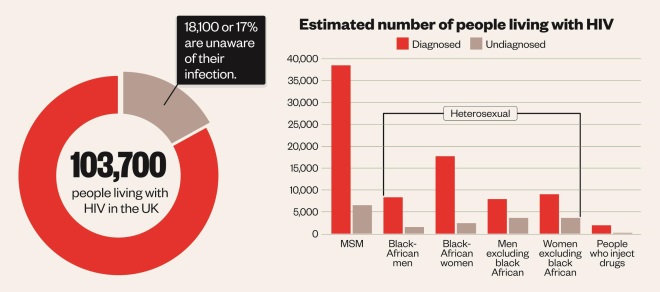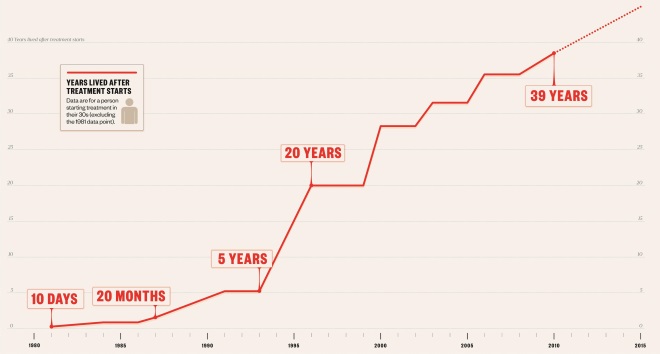Download a PDF of the full information graphic.
Identifying HIV
People with HIV can only benefit from the advances in the treatment of HIV if they are identified and begin receiving drugs. In 2014, 17% of people living with HIV in the UK remain undiagnosed. The most affected groups of people are men who have sex with men (MSM) and black African men and women.

Evolution of HIV care
HIV attacks and depletes the immune system of CD4+ T cells. If infection is left untreated, it can progress to a point were previously harmless microbes become deadly infections, a condition we now know well as AIDS. In the early days of theHIV epidemic, most patients had progressed to AIDS by the time of diagnosis. Medicine could do no more than treat or limit opportunistic infection, and most patients died within a year or two. Today, most patients are diagnosed and begin treatment long before the virus has time to ravage their body’s defence system. And thanks to the development of dozensof new drugs that suppress viral replication, people infected with HIV can live a long life.


Acknowldegement: with thanks to Margaret May at University of Bristol and Ghadeer Muqbill, St George’s Hospital, London, for editorial advice and support.


